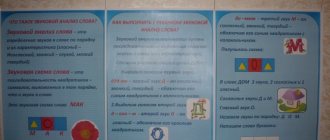In the Russian language there are many words that are difficult to pronounce: terms borrowed from foreign languages, names of drugs, specific scientific vocabulary, names of professions, etc. When communicating at the everyday level, such words do not cause any special problems. You can always replace them with simplified vernacular synonyms or, as a last resort, laugh at the fact that you were unable to pronounce them correctly. However, delivering an official speech or report usually forces the speaker to adhere to strictly defined terminology and operate with the most precise concepts. You can learn how to deliver a speech beautifully, including how to avoid stumbling over complex terms, in public speaking courses from the Benefis theater studio. In our classes, we purposefully take complex combinations of sounds, words and phrases and train to pronounce them correctly. In the future we will include exercises for diction with cork. Over time, even a cork in the mouth ceases to interfere with correct pronunciation. How to master basic acting and public speaking skills? Answer 4 short questions and we will select the optimal curriculum
The most difficult words to pronounce in Russian
When determining the “difficulty” of a word, you can be guided by the number of letters and the number of words from which it is composed, since the longest words are compound ones. Let's consider the hard-to-pronounce words of the Russian language that hold the record for the number of letters in various categories.
From the Guinness Book of Records:
- Overly considerate is the longest word in the Russian language.
- X-ray electrocardiographic – previous record.
From the grammatical dictionary of the Russian language by A. A. Zaliznyak:
- Privately owned is the longest word.
- Re-examine, substantive, internationalize - record-breaking verbs.
- Misanthropy, Excellency are nouns.
- Eleventh grader, clerk - animate nouns.
- Unsatisfactory – adverb.
From the Spelling Dictionary of the Russian Academy of Sciences:
- Agricultural and mechanical engineering is an adjective with a hyphen.
- Electrophotosemiconductor is an adjective without a hyphen.
- Rooter-bulldozer-loader, animation-inanimateness are nouns with a hyphen.
- Water-mud-peat-paraffin treatment is a noun without a hyphen.
How to learn to pronounce difficult words
- Development of the articulatory apparatus.
- Working with speech material.
Development of the articulatory apparatus
Each word is a combination of sounds and their combinations: the more combinations, the more difficult it is to pronounce the word. To master a word, you first need to develop the pronunciation of first each sound individually, then each combination of sounds found in this word. The “from simple to complex” method can be used to master the desired word in the shortest possible time, but it is best to practice the articulation of different sounds daily as exercise. You can comprehend this technique by first pronouncing difficult words starting with the letter A, then starting with the letter B, etc. Articulatory gymnastics allows you to keep your speech apparatus in good shape: daily exercises are guaranteed to save you from difficulties with new tricky words. To do this, it is enough to do a light warm-up of the facial muscles and slowly, carefully pressing and articulating each sound, read aloud any passages of text and words that are difficult to pronounce.
Working with tongue twisters (speech material)
When the speech apparatus is sufficiently developed and you can easily pronounce any combination of sounds, in particular complex words with the sound R, it’s time to work on automation. The best way to do this is with regular tongue twisters. Their diversity will allow you to identify the most problematic letter combinations and work hard on them. The main thing is not to try to pronounce tongue twisters quickly; it is much more important to pronounce them clearly, focusing on the most difficult words. Speed always comes with technology. You can test your strength by pronouncing such difficult tongue twisters: Mom didn’t spare soap Mom Mila didn’t like soap Mila didn’t like soap Mila dropped Osip was hoarse, and Arkhip was hoarse Osip, and Osip was Osip Osip Arkhip, and Osip was hoarse Arkhip was hoarse, and Osip was hoarse.
How to make your voice strong and confident? We will teach this and other skills in our public speaking course. Come to public speaking courses at the Benefis theater studio. We will teach you:
- How to remove clamps and loosen up
- How to learn to improvise
- How to use the camera
- How to work with your spectrum of emotional states
- How to make your voice strong and confident
And much more. Choose the most convenient format of classes for yourself. We conduct training courses in two formats: “Online” and “Offline” in the center of Moscow.
Spelling difficult words
So, as we already know, the stems in complex words are connected by the vowels “o” and “e”. In order not to get confused in spelling, there is a simple rule: after the base, a connecting vowel “o” is written on the hard consonant (sam o kat, vert o let). If the stem ends in a soft vowel, hissing and “ts,” then the connecting vowel “e” is written: earth e kop, kash e var.
If the final soft consonant of the first stem (“v”, “n”, “r”, “t”) is pronounced firmly, then in this case the connecting vowel “o” is written: bloodthirsty, long-range, chant.
There are some words in which the connecting vowel “e” is written, despite the presence of a soft consonant at the end of the first stem: long-range, songwriting.
There are complex words that do not have a connecting vowel. In order not to get confused in spelling, you need to remember their varieties. These words include :
- Words containing the stem in its original form: pastime, time calculation, cotyledon.
- Some terms: oxygen-containing, nitrogen-fixing.
- Words containing the stem “air”: air traffic controller, air base, etc. They retain the letter "a" at the end of the stem.
- Words that are formed from phrases and have a case ending in the first part: insane, crazy.
- If the word contains a numeral in the genitive case: two-story, five-year-old, eighth-grader. In these cases there is no connecting vowel. The exception is words that contain the numerals “one”, “ninety”, “hundred”, “thousand”: thousand-year, hundredfold. The numeral “forty” can be part of a word either with or without a connecting vowel: forty years, sorokoust.
- Words ending in -ification: gasification, electrification. They should be distinguished from complex words by two roots, for example, gas pipeline.
- Words with foreign language prefixes are written together. Such prefixes include the following: anti-, archi-, counter-, ultra-, etc. Words with the constituent parts quasi-, pseudo-, pan- are written using the same principle. But if this part is followed by a proper name, then a hyphen is written (pan-Europe) [D. Rosenthal, 2013].
Compound nouns also have their own spelling nuances. The main thing is to remember the basic rules.
Such nouns are always written together if:
- They contain elements of aviation, aero, meteo, micro, auto, neo, radio, television, mono, etc. For example, aircraft mechanic, auto repair shop, radio broadcasting, electric train.
- The first part of the verb ends in -i: daredevil, spinner, adonis. But there is one exception: tumbleweeds. This word needs to be remembered.
- The word begins with board- or ends with -meter: flight attendant, dynamometer.
- The word is a compound abbreviation: political officer, department head, state committee.
- The first part of the word is “quarter”: quarterfinal.
As you can see, everything is quite simple. You probably come across many of these nouns every day in text or use them in speech, so there shouldn’t be any difficulties in writing them.
The following compound nouns are written with a hyphen :
- Without a connecting vowel, which denote the names of mechanisms, scientific and other terms: chair-bed, stop valve, prime minister.
- Beginning with block and press: press bureau, press center, block system. The word "roadblock" is an exception.
- Denoting complex units of measurement: kilogram-hour, man-day, gram-atom. Exceptions: workday and workhour.
- Names of political parties, trends and their adherents: radical socialist, social democrat.
- Names of cardinal directions: southeast, northwest.
- Beginning with vice-, chief-, staff-, non-commissioned-, life-, ex-: vice-president, non-commissioned officer.
- Names that include a verb in the personal form, a conjunction or a preposition: Ivan-da-Marya, Rostov-on-Don.
- Containing a word with an evaluative meaning: would-be leader, wonder woman.
- Scientific and technical terms that contain the names of letters or the letters themselves: x-rays, alpha particles.
- Surnames consisting of several parts: Nemirovich-Danchenko.
- Geographical names consisting of several words, including official ones: Komsomolsk-on-Amur, Rostov-on-Don [D. Rosenthal, 2013].
An important point: if it is necessary to combine several complex nouns with the same second part, this can be done using the conjunction “and”, while the first parts of the words are denoted by a hyphen: auto, bicycle and motorcycle racing.
A compound adjective is written together if:
- Consists of a main and a dependent word (the words have a subordinate relationship): railway (railway), able-bodied (able to work).
- Formed by combining an adjective with a noun - a geographical name: Karlovy Vary (Karlovy Vary), Velikie Luki (Velikie Luki).
- Is a scientific and technical term: biconcave, nitrate, moisture resistant.
- Begins with upper-, lower-, early-, late-, ancient-, middle-, general-: Old Russian, national.
- Is a term or word formed by a free phrase (adverb and participle or adjective) and begins with high-, low-, deep-, shallow-, narrow-, wide-, strong-, weak-, etc.: slightly salted, thin-voiced , potent.
- Starts at quarter-: quarter-final games.
- Derived from a foreign surname preceded by a service word: de Broglie hypothesis (de Broglie).
- Derived from Vietnamese, Korean, Chinese proper names: Laozi (Lao Tzu) [D. Rosenthal, 2013].
Some compound adjectives are written with a hyphen. In order not to get confused in their spelling, it is enough to remember a few basic rules.
A compound adjective is written with a hyphen if:
- Derived from a compound noun, which is written with a hyphen: northwestern, life guards. But if a given word has a prefix, the word is written together.
- Consists of a combination of names, a first name and a surname, two surnames, a first name and a patronymic: Ilfo-Petrovsky satire, Robin Hood stories.
- It is formed from several bases that have equal concepts, while the conjunction “and” or “but” can be placed between the parts of the adjective: fruit and berry garden (fruit and berry garden), cardiovascular diseases (heart and vascular diseases).
- They contain fundamentals that indicate heterogeneous characteristics: official business, military surgical.
- They indicate quality and an additional shade: sweet and sour, booming and loud.
- Indicate shades of colors: blue-violet, yellow-green.
- They are of a terminological nature: legumes-cereals, atomic-molecular.
- The first part of the word is of foreign language origin and ends in -iko: mechanical-thermal, political-mass.
- Indicates a geographical or administrative name and begins with east, west, north, north, south; south: West Korean Gulf.
- Formed from a combination of an adjective and a noun, which have swapped places: dictionary-technical (technical dictionary) [D. Rosenthal, 2013].
In fact, there are much more nuances in spelling complex words; there are also exception words that need to be remembered, but these basic rules will help you not get confused in spelling and not make serious mistakes if you come across similar words in the text.
The most difficult words in Russian and how to remember them
Foreign languages are not easy. Even the most of them will cause a lot of difficulties for those who want to study it. Yes, and even among polyglots who master them faster than others. Any person will have difficulties: in pronunciation, spelling, understanding. Many words cannot be mastered not only after minutes, but even after hours of practicing and memorizing them. The clear leader in such words is the Russian language. Foreigners who take up the “great and mighty” cannot master many words. But don’t rush to get upset, almost all of them end up on the list of losers, but only thanks to colossal effort and regular training. Today we will introduce you to the words that cause the greatest discomfort among foreign guests.
Hello
Just started learning Russian? Be prepared to be faced with a difficult word from the very beginning. “Hello” is a greeting, the same as “hi”, “hello”, “salut”. Agree, it is difficult to pronounce and write even for native speakers, what can we say about language learners.
Long words
“Eleventh grader”, “respectively”, “self-employed”, “unsatisfactory”, and so on. Not everyone can even pronounce them correctly the first time, let alone remember them. As practice shows, the best friend in this case is only regular training. It’s not for nothing that there is a proverb in the Russian language: “Repetition is the mother of learning.”
Best"
“The best”, “the best”, “the best” - what variations of this word do Russians encounter when communicating with a foreigner! The superlative degree of the adjective “good” is one of the words that is not so easy to come by.
Lighter
Regardless of whether you smoke or not, there is a possibility that you will need a lighter. Many foreigners end up asking for “fire,” which makes Russian speakers laugh. Even if they understand you, you still need to remember this separate word that was invented for this.
Bread
Bread is the head of everything. This is the most important dish on the table of a Russian person. For a foreigner who has begun to study Turgenev’s language, bread is one of the most difficult words to pronounce, despite the small number of letters. People who, after long training, still say “bread” correctly, rejoice like children and already consider themselves conquerors of the Russian language.
Verbs related to movement
In Russian you can’t say “Go!” and everything will become clear. All these “go”, “drive”, “enter”, “reach”, “go around”, “go out” are difficult both to understand and to pronounce. Foreign citizens learning Russian clearly think to themselves that staying home and not moving is much safer than trying to figure out all these words.
The Russian language is considered quite complex, compared, for example, with German or English, although in terms of the degree of difficulty in pronouncing words, the Scandinavian languages are probably in first place. There are a lot of long words in it. If we talk about the longest, then in the Guinness Book of Records the longest word in the Russian language is declared “X-ray electrocardiographic”, it has 33 characters. This was a record in 1933. And in 2003 it was replaced by a 35-character word - “highly considerate.”
Post-revolutionary lexicon of abbreviations
Immediately after the October Revolution, many new words appeared, starting with the adjectives “pre-revolutionary”, “old regime”. The Bolsheviks renamed all tsarist institutions and created new structures. But the new names turned out to be cumbersome and wordy. In everyday life, they quickly learned to abbreviate them based on the first sounds. With names such as “CheKa”, “TsIK” (“centre executive committee”), it turned out to be pronounceable. But “People's Commissariat of Internal Affairs” (People's Commissariat of Internal Affairs) is quite difficult to pronounce. What can we say about such abbreviations as “goruprmestprom”, “raipromtorgprodtekh”, “administration department”, “Vsekohotsoyuz”, “Glavuprrechtrans”, “Goskomselkhoztekhnika”.
Emblem of the Water Transport Commissariat with an abbreviated name
There is no point in memorizing all these all-Union cooperative hunting unions, river transport departments, and agricultural machinery committees, but you need to learn the principles of abbreviation and decoding. This may be needed when reading the pre-war press, novellas and short stories.
Chemistry is a storehouse of the longest words
Although their leadership is formally recognized - in analytical chemistry there are simply huge names of substances, since they are built according to a certain scheme. For example, the adjective “tetrahydropyranylcyclopentyltetrahydropyridopyridine” consists of 55 letters. Or “methoxychlordiethylaminomethylbutylaminoacridine” - 44 characters.
Another example: the prefix “great-” can be used many times in a concept that denotes the degree of relationship - “great-great-great-great-great-great-great-great-grandfather.” Theoretically, this word can be stretched indefinitely. Word formations from numerals that denote certain quantities can also be extremely long: “one thousand nine hundred and seven hundred and six centimeters” - 43 characters. At the same time, regarding all these examples, philologists are still arguing whether they should be considered the longest words in the Russian language. They are not universally used, and the ability to create endless designs sets them apart from the mainstream.
Summarize
The Russian language is amazing and rich. What kind of complex words are not found in it! Writing and pronouncing them is a great workout for the brain and tongue, wouldn’t you agree? Yes, not everyone can understand and remember the spelling features of such words, and no one is immune from mistakes. Only those who do nothing make no mistakes! Remember?
Literacy will always be highly valued in society, and even high computer technologies cannot replace your knowledge, because a computer also tends to make mistakes. If you have difficulty understanding how to correctly spell or pronounce a word, do not hesitate to turn to a student’s textbook for help: the rules are the same for everyone, and they do not change as the student ages.
In addition to theory, do not forget to practice a lot. Classes for 15-20 minutes daily will be much more effective than one lesson for 1-2 hours once a week, especially since today this can be done in a mobile application (on the way to work, for example).
Remember that a high level of literacy is your calling card, regardless of gender, age or position. This is a competitive advantage, dignity, a strong quality that will never lose its relevance.
Take care of the Russian language and remember that we are responsible for its future!
Good luck!
To consolidate the material of the article, we suggest taking a short test :
We also recommend reading:
- Storytelling
- The most difficult compound prepositions of the Russian language
- Mnemonics: remembering foreign words
- How to learn to understand the taste of a word
- Maybe, maybe somehow
- “Alive as Life” - a non-children’s book by Chukovsky
- George Orwell's 5 Rules for Those Who Want to Learn to Write
- 20 interesting facts about the Russian language
- Strategies for enriching your vocabulary
- Parasitic words and how to get rid of them
- How to write "O" and "E" after hissing words
Keywords:1LLL, 1Russian
The longest verbs and other parts of speech
If we talk about verbs, then the longest words are “re-examine” and “internationalize”, they have 24 letters each, if you form word forms from them with the ending, for example, “-uyushchie”, you get 25 letters each. The longest nouns – “misanthropy” and “excellency” – also have 24 letters; you can create plural word forms, which will result in 26 letters (although the first word is not used in the plural). Among animate nouns, the words “eleventh grader” and “clerk” have the most letters – 21 each. The longest interjection recorded in Russian dictionaries is “fizkult-hello.”
We are accustomed to the fact that prepositions and conjunctions are short words, but the word “accordingly” falls out of the general series, it has 14 letters. The situation is similar with adverbs - there is only one long adverb “unsatisfactory”, consisting of 19 letters.
Some argue whether nouns and adjectives with hyphens can be considered the longest words in the Russian language, since they are “glued together” artificially, but let’s still pay attention to them: in the word “agricultural-machine-building” there are 38 characters, and in “rooter” -bulldozer-loader” – 31. Similar words include the adjective (albeit without a hyphen) “electrophotosemiconductor” – 28 characters and “water-mud-peat-paraffin treatment” – 29 characters. The longest food word formation – out of 38 characters – is “bread sausage, kindly productive”. The word is funny, but at the same time noted in an authoritative source - the spelling dictionary of the Russian Academy of Sciences (chief editor V.V. Lopatin).
Old Slavic, Church Slavonic, pre-revolutionary archaic
We have already mentioned the greeting “hello”. The form used for greeting remains the only one from the verb “hello”, and is therefore difficult for foreigners to understand. Among the words that are still used, but have already been fairly forgotten, we can mention:
- knight;
- bite;
- upper room;
- jug;
- lively;
- outpost;
- eminent;
- rattlesnake;
- red price;
- poppy;
- arrears;
- throne;
- rags;
- mansions.
They are not difficult to pronounce, but the meaning of some words has changed. For example, a “crawler” was a ceremonial carriage, but now they call an old car that contemptuously. Even literate people are forced to turn to the dictionary when writing the noun “dishes”. Those who are confident in their literacy often write “things”. But among the ancient Slavic words that have entered the modern lexicon, there are also difficult ones to pronounce (especially by foreigners) - “to your heart’s content”, “passion”, “splash”, “to emerge”, “to stick in”.
Few words have been preserved from Church Slavonic vocabulary. Even the alphabet and writing have changed.
14 letters from this alphabet are no longer used
The letters “zelo”, “onic”, “ot”, “fita”, “Izhitsa” did not pass from the Church Slavonic alphabet to the modern Russian alphabet, not to mention the disappeared nasal sounds. Nevertheless, the words “brow”, “eye”, “bold”, “burden”, “trembles”, “create”, “blessing”, “philanthropy” remained in use, which need to be known and used correctly.
Pre-revolutionary vocabulary, as perceived by people of the 21st century, has lost many words that have disappeared along with the concepts. The words “policeman”, “nihilist”, “bombist”, “titular councilor”, “serf”, “department”, “comrade of the minister” (this disappeared position would now be called “deputy minister”), and “night shelter” have disappeared. There are hundreds of such examples. Among them there are words that are difficult to pronounce and difficult to spell: “adjunct”, “burgomaster”, “ro”, “infantry general”, “patronized”, “beneficiated”.
It is not necessary to memorize all obsolete terms. However, you need to know the difference between “your honor” and “your excellency” in order to meaningfully read pre-revolutionary literature (all Russian classics). When you come across an unfamiliar word, don’t be lazy to look in a dictionary.
Ozhegov’s 1989 edition of the dictionary includes 57 thousand words, most of which have not lost their relevance
The longest words in literature
If we recall classical literature, then Nikolai Leskov found in one of his popular stories the word “for consideration”. It’s interesting that no one can reliably explain what it means – most likely, Leskov invented it himself.
The longest abbreviation will probably make an indelible impression on you: “NIIOMTPLABOPARMBETZHELBETRABSBORMONNIMONKON-OTDTECHSTROMONT.” We will not list the full name of this institute - it will take a whole paragraph. Imagine how difficult it was for the employees of this scientific institution to name their position or place of work when necessary.
Fun fact - there is an extremely long word for a phobia - fear of just long words! It sounds like this: hippopotomonstrosesquippedaliophobia (37 characters). By the way, this is actually the Latin term “hippopotomomonstrosesquippedaliophobia”, which is recognized as the longest word in the world.
The most difficult words
Many interesting facts can be found regarding the most difficult words of the Russian language. For example, it is generally accepted that three “e”s are found only in the word “long-necked”. Meanwhile, there is also a “snake eater”. You can also find in dictionaries words starting with “Y” - “Ytyk-kyyol”, “Ygyatta”, “Ynykchansky” and so on. All of them are difficult to pronounce due to combinations of letters that are unusual for us. There are plenty of other hard-to-pronounce words in the Russian language. They especially cause inconvenience to announcers or lecturers, whose job is to pronounce texts out loud. In particular, such words include the words “who took advantage of”, “preceded”, “participated”, “benefited”, “Novovodolashsky”. The words “euphemism”, “county palatine”, “pre-celebration” cannot be called simple.
This is how it is - the Russian language, rich in long words.
In Turkey, they analyzed the most difficult words in the Russian language that Turks may encounter if they decide to master Pushkin’s language.
The Medya Gunlugu publication has compiled a kind of top list of the most difficult words and combinations to learn in the Russian language. We are talking about words with the most letters
The word “X-ray electrocardiographic” is recognized as the most difficult. In second place is the word “private enterprise”, in third place is “substantializing”.
In the top there was a place for the words “misanthropy”, “re-examine”, “agricultural and mechanical engineering”, “excellency” and “attraction”.
From 2021 to 2025, the Russian authorities will spend 7.4 billion rubles on the dissemination and promotion of the Russian language around the world. The program provides for an increase in the number of people speaking Russian, the creation of centers to promote the Russian language in other countries, and the involvement of the maximum number of foreign citizens in events related to one degree or another to the study or promotion of the Russian language.
Pronunciation difficulties
Radio and television announcers most often encountered pronunciation difficulties. According to TV announcer Anna Shatilova, the list of difficult words (even for Russians) can include:
- improvements;
- engraved;
- previous;
- to the one who took advantage;
- dedication;
- small-caliber;
- publish;
- regenerating;
- compromising;
- expropriate;
- transformable;
- archivists;
- advertised;
- being restored;
- reverb;
- illustrated;
- surrealism;
- phantasmagoric.
This list can be continued for a long time. In ordinary communication, mistakes are not very important; public figures need to train their diction: lecturers, teachers, artists, institute teachers, politicians.







